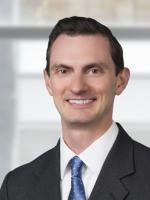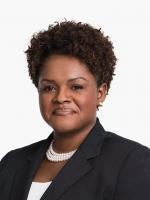In keeping with — and in response to — HHS-OIG’s November 2020 Special Fraud Alert on industry speaker programs, the Pharmaceutical Research and Manufacturers of America has updated its Code on Interactions with Health Care Professionals, which will take effect on January 1, 2022. Given the Code changes and government attention to speaker programs, companies should review their policies and practices to determine whether changes should be made or enhanced controls should be implemented.
IN DEPTH
Likely inspired by recent government enforcement activity and guidance on industry speaker programs, the Pharmaceutical Research and Manufacturers of America (PhRMA) announced revisions to its Code on Interactions with Health Care Professionals (Code), which will go into effect on January 1, 2022. These changes focus on the “suspect characteristics” of speaker programs that the Department of Health and Human Services Office of Inspector General (OIG) discussed in its Special Fraud Alert: Speaker Programs (SFA) published November 16, 2020. Our client alert on the SFA is available here. PhRMA also made other updates to the sections covering meals offered by company personnel during informational presentations, healthcare professional (HCPs) consulting arrangements and company support for third-party educational or professional meetings.
Speaker programs are a standard way for pharmaceutical manufacturers to educate and inform HCPs about the risks, benefits and expected clinical outcomes of FDA-regulated products. FDA has long recognized certain so-called “bona fide scientific exchanges” among HCPs as beyond the purview of traditional advertising and promotion restrictions when certain guardrails are in place. Nonetheless, these programs have long been the target of Department of Justice (DOJ) and OIG investigations. In its November 2020 SFA, OIG went so far as to say it is “skeptical about the educational value of such programs.” PhRMA appeared to respond to this view in its August 6, 2021, press statement, reiterating that a “fundamental principle” behind the Code’s guidance on speaker programs is that it has “long recognized that company-sponsored speaker programs provide important substantive educational information about the benefits, risks and appropriate uses of company medicines and related disease states.”
Summary of Code Changes
HCP Speaker Programs
Key updates to the Code include:
-
Program purpose: The Code emphasizes that speaker programs should be used to present substantive educational information designed to help address bona fide educational needs, taking into account recent developments or changes (e.g., new medical or scientific information; benefits, risks, and appropriate uses of company medicines and related disease states) or the availability of such educational programming.
-
Speaker selection: The revised Code adds an express statement that HCPs should not be selected to serve as a speaker “based on past revenue that the speaker has generated or potential future revenue that the speaker could generate by prescribing or ordering a company’s products.” OIG cautioned more broadly that company sales or marketing business unit influence on speaker selection is a suspect characteristic.
-
Attendance:
-
The Code now states that repeat attendance at a speaker program on the same or substantially similar topic where a meal is provided to the attendee is generally not appropriate, unless the attendee has a bona fide educational need to receive the information presented.
-
Building on existing Code guidance, PhRMA states that attendance by the family members, friends, or significant others or other guests of HCPs is not appropriate unless these individuals have an independent, bona fide educational need to receive the information presented.
-
Another new Code provision states that attendance by speakers at programs after speaking on the same or substantially the same topic is generally not appropriate.
-
-
Meals and Venue:
-
The Code reiterates longstanding guidance that the speaker program should occur in a venue and manner conducive to informational communication, and a company representative should be physically present; and meals offered as an incidental business courtesy to attendees of speaker programs should be modest, as judged by local standards.
-
While the OIG found the availability of alcohol as a “suspect” feature, PhRMA went farther to expressly state that companies should not pay for or provide alcohol in connection with speaker programs.
-
In contrast to the OIG’s broad characterization of restaurants as a suspect characteristic, the Code merely cautions against “high-end” restaurants. The Code retains the position that many restaurants have private dining rooms that can be conductive to an educational presentation and focuses instead on whether the venue selected by the company is “extravagant or the main attraction of the event or perceived as such.” Luxury resorts, high-end restaurants, and entertainment, sporting, or other recreational venues or events are not appropriate.
-
Company Informational Programs and Meals
-
PhRMA updates the section on company informational programs and accompanying meals by company representatives, which typically present information during the HCP’s working day, including mealtimes.
-
The Code states that occasional, incidental meals can be offered, in connection with these meetings, to the HCP, as well as members of their staff attending presentations, so long as the presentation provides scientific or educational value, and the meal provided is: (a) modest as judged by local standards; (b) not part of an entertainment or recreational event; and (c) provided in a manner conducive to informational communication.
-
Any such incidental meals and meetings should be limited to in-office or in-hospital settings and “only where there is a reasonable expectation, and reasonable steps are taken to confirm, that each attendee has a substantive interaction or discussion with the company representative.”
-
Finally, the Code confirms that “offering ‘grab-and-go’ meals is not appropriate.”
-
HCP Consulting
Carrying over the revisions to the speaker program section, PhRMA updated the consulting section to also contain an express statement that consultant selection “should not take into account the volume or value of past business that may have been or potential business that could be generated for the company by the HCP consultant.” This section also states that high-end restaurants and entertainment, sporting, or other recreational venues or events are not appropriate venues for consultant/advisor meetings.
Virtual Third-Party and Company Meetings
The revised Code includes a brief mention that the principles articulated for company support of continuing medical education and third-party meetings apply to virtual events as well as in-person. However, the Code lacks further guidance and does not incorporate PhRMA’s Statement on Application of PhRMA Code Section 2 During Emergency Periods (Statement) issued on June 30, 2020, that addressed how to shift company informational and other programs to a virtual environment due to the pandemic. The Statement’s guidance is time-limited to the existence of the national public health emergency. Thus, it may be possible that PhRMA does not intend to continue supporting virtual company meetings with incidental meals following the end of the national emergency, or is still considering the issue.
Analysis and Implications
Given the Code changes and government attention to HCP speaker programs, companies should review their policies and practices to determine whether changes should be made or enhanced controls should be implemented. As noted above, there are details in which the Code and the SFA differ, such as having restaurants as venues and having alcohol available, that companies should consider as they re-evaluate their speaker programs.
More fundamentally, it is important to note that OIG suggests that companies should broadly assess the need for in-person programs and related remuneration to HCPs altogether, even after the ongoing COVID-19 public health emergency ends, citing in-person programs as inherently higher-risk activities under applicable fraud and abuse laws. The Code does not necessarily share this view, but it also did not expand its discussion of virtual programming beyond stating that its guidance regarding company support for continuing medical education programs and third-party educational and professional meetings applies to virtual and in-person meetings. As a result, companies should thoughtfully consider the contours of their speaker program activities in light of the Code’s changes and with the understanding of OIG’s perspective.
We also note that some jurisdictions, such as California, Connecticut, the District of Columbia, and Nevada, have requirements for companies and their representatives to follow the Code. Thus, companies should take steps to ensure compliance with the Code in those jurisdictions if policies vary from the Code in certain respects.






 />i
/>i

